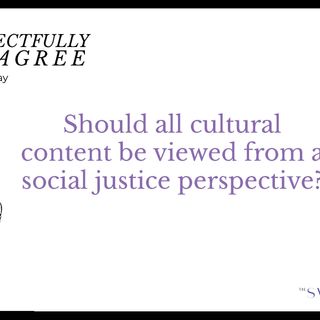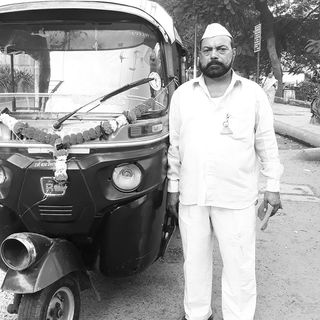
Media, Fans, Listen to Anushka Sharma: Wives of Cricketers Are Not Your Punching Bag
Reducing accomplished women, who happen to be in a relationship with sportsmen, to meddling bad-luck charms is simply not cricket.

Yesterday evening, Anushka Sharma released a statement on her social media accounts excoriating the way the media and fans have routinely and falsely depicted her as a meddling bad luck charm when it comes to the career of her husband, Indian cricket captain Virat Kohli, and the fate of India’s cricket team.
After noting all of the cricket-related rumors about her that she has hitherto ignored, she addressed and rebutted the most recent accusation that she is meddling in India’s selection committee: Former Indian cricketer Farokh Engineer had cast aspersions on the selectors in charge of picking players for the Indian cricket team for the upcoming World Cup because they were serving Sharma tea and chatting with her. He suspected they were being influenced by Kohli’s preferences in picks, and somehow dragged Sharma into the perceived racket, too.
Related on The Swaddle:
“Today, I have decided to speak up because someone’s silence cannot be taken as their weakness,” Sharma wrote. “I am not and will not be a pawn to be used by anyone’s thoughts or beliefs or agendas and next time you want to use my name to discredit someone or the board or even my husband, do it with facts and proof & leave me OUT of it.”
This comes on the heels of countless instances in which Sharma has been doubted or blamed for anything and everything that goes wrong with the Indian cricket team — from being declared the cause for Kohli’s poor performance in a game, and being called a distracting presence when she chooses to attend games, to being excoriated for posing in a photo with the Indian cricket team and receiving censure for accompanying Kohli on overseas trips. She has been painted as a distracting, fickle, and inconvenient presence in the oh-so-important cricketer’s life and has constantly been reduced to her wifeness — wifeness being, in fans’ minds, her sexuality and sex appeal, which force Kohli to put sex above his duties to the country.
Indian cricket fans and media have flipped an old adage on its head — “behind every successful man there is a woman,” but in which the woman is only trying to bring down the man and trap him in her feminine wiles. It’s crazy that in 2019, an accomplished, high-profile woman with an entirely separate, very successful career is routinely reduced to the trope of a meddling archwife who has nothing better to do than jealously guard her husband’s career. And yet, here we are. Sharma, a successful actor and businesswoman, is still seen as only a conniving wife by Kohli’s fans. That, however, is far from the truth. As Sharma herself says, “I have led my life, built my own career with utmost dignity and I am not going to compromise that for anything. Maybe, it’s hard for some to believe that, because, I am a self-made, independent woman, who only happens to the wife of a cricketer.”
Related on The Swaddle:
Indian Media, Esther Duflo is not ‘Wife of’; She’s a Nobel Laureate in Economics
While Kohli is constantly lauded for great performances, Sharma seems to bear the brunt of his failings on the pitch. This reflects how we view traditional femininity placed beside traditional masculinity, as only existing to boost masculinity. As we’ve written before, femininity — arguably society’s measure of success at being a woman — is determined by how well women deliver on their obligations to others. Women are never their own; who they are and how they present themselves reflects on their husbands’ masculinity, their children’s success, their families’ honor. This is the deep wellspring of gender inequality that feeds all other, more tangible, examples of disparity. In the world of sports, especially, Sharma becomes the target of cricket fans’ sexist jokes derived from their perception of her influence on Kohli’s hyper-masculinity.
Flip it the other way and we come across a void — Kohli is never blamed if Sharma’s movie is not a hit. This also reflects how we view traditional masculinity in society; it’s a trait to be worshipped and protected at all costs. This becomes easy because there’s always a woman nearby to pick up the blame, and the pieces, of shattered masculinity. While it’s insulting to blame Sharma for Kohli’s failings on the pitch, it is also insulting to Kohli himself — by painting him as someone who is a slave to his wife’s influence, he is being robbed of his own agency, as is Sharma.
It’s such a prevalent mindset that Sharma is far from alone. In June, six-time tennis Grand Slam winner Sania Mirza found herself in a similar position: being hounded for cricketer-husband Shoaib Malik’s poor performance during a match that followed an evening out for the couple, their child, and two other Pakistani cricket team members.
“That’s the video you shot without asking us, disrespecting our privacy even though we had a child with us? [The] outing was dinner and yes people are allowed to eat if they lose a match! Bunch of fools,” she tweeted in response to fans pinning the lost match on her.
In Sharma’s case, the irony is Kohli’s fans are giving her immense power she herself says she does not have and does not want — and by doing so, they are not only taking away her power to exist independently of her husband but also taking away Kohli’s power to exist independently of his wife. There’s no progress where a woman is seen as a wife first and a human second — not in society and definitely not in cricket.
Rajvi Desai is The Swaddle's Culture Editor. Liesl Goecker is The Swaddle's Managing Editor. Together, the only things they aren’t critical of are Nutella-cheese sandwiches.
Related


Peripheral Vision: the Rickshaw Driver
